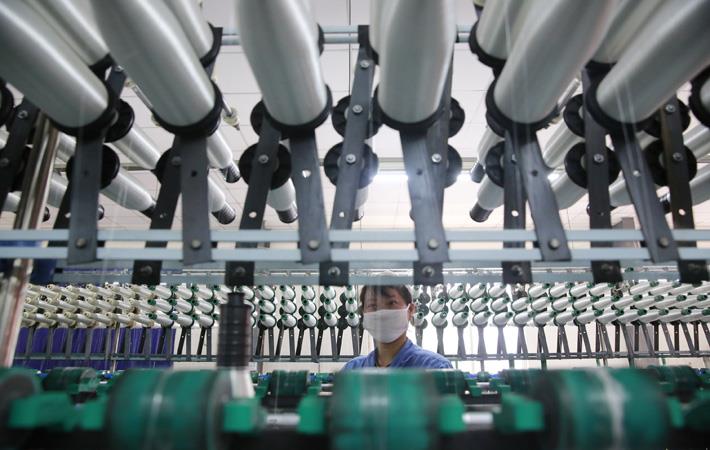Despite challenges like energy supply, customs procedures, lack of backward linkages and insufficient skills, Ethiopia has the potential to become a global textile manufacturing hub with its wide and young labour pool, growing market potential, advantageous trade agreements and strategic position, participants agreed at a recent dialogue in Addis Ababa.
The dialogue on Ethiopia’s potential to become the next textile and apparel (T&A) supply base for the world was organised last month by the International Trade Centre (ITC) under the Partnership for Investment and Growth in Africa (PIGA) project.Despite challenges like energy supply, customs procedures, lack of backward linkages and insufficient skills, Ethiopia has the potential to become a global textile manufacturing hub with its wide and young labour pool, growing market potential, advantageous trade agreements and strategic position, participants agreed at a recent dialogue in Addis Ababa.#
The discussion was organised in collaboration with the Ethiopian Investment Commission (EIC) and the China Chamber of Commerce for Import and Export of Textile and Apparel (CCCT), according to an ITC press release.
The event attracted more than 100 international buyers, potential Chinese investors, representatives of Chinese and foreign companies in Ethiopia and of Ethiopian institutions. It was followed by field visits to factories in several industrial parks around Addis Ababa.
The Ethiopian government has also prioritised the development of this sector, set up the Ethiopian Textile Industry Development Institute (ETIDI) to strengthen the overall value chain, and created a conducive investment climate for the sector.
All stakeholders emphasised the role of foreign direct investment in leveraging this potential and the importance of attracting sustainable investments that comply with social and environmental standards.
PIGA is part of Invest Africa (IA), a flagship programme of the United Kingdom and Northern Ireland’s Department for International Development (DFID) facilitating foreign direct investment with high development impact into selected African countries.
Under IA, PIGA aims to contribute to job creation and sustainable growth in Ethiopia, Kenya, Mozambique and Zambia by supporting these countries to attract foreign direct investment, specifically Chinese investment, in the agro-processing and light manufacturing sectors. PIGA is also designed to enhance the capacity of these countries for effective investment promotion.
PIGA is implemented by the International Trade Centre (ITC) in cooperation with the China Council for the Promotion of International Trade (CCPIT) and the China-Africa Development Fund (CADFund).
Fibre2Fashion News Desk (DS)
